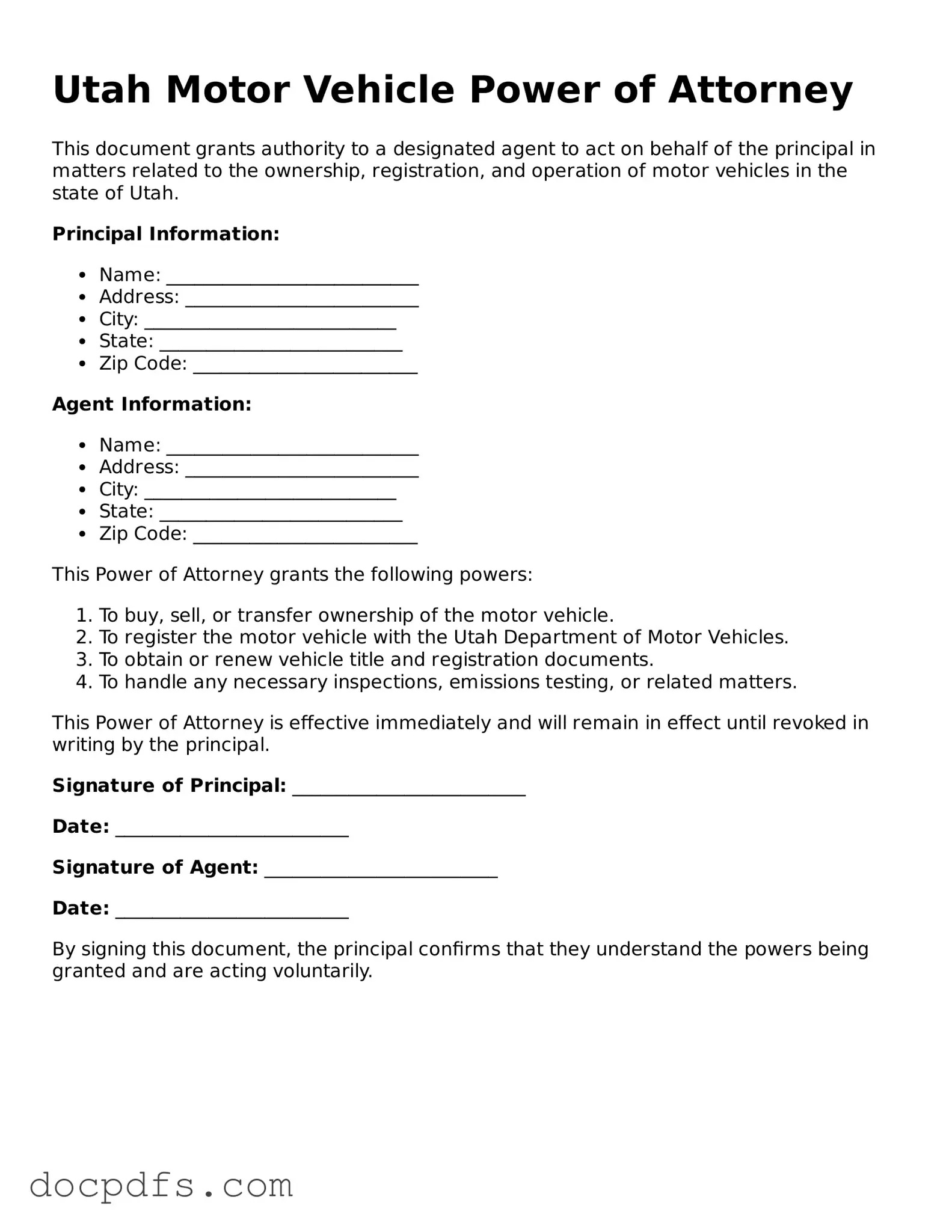What is a Motor Vehicle Power of Attorney in Utah?
A Motor Vehicle Power of Attorney (POA) in Utah is a legal document that allows an individual (the principal) to authorize another person (the agent) to act on their behalf regarding matters related to motor vehicles. This can include tasks such as transferring ownership, registering a vehicle, or obtaining a title.
Who can be designated as an agent in the Motor Vehicle Power of Attorney?
Any competent adult can be designated as an agent in the Motor Vehicle Power of Attorney. This includes family members, friends, or professionals such as attorneys or car dealerships. It is essential that the agent is trustworthy and capable of handling the responsibilities assigned to them.
The Motor Vehicle Power of Attorney can grant various powers, including:
-
Transferring ownership of a vehicle.
-
Registering a vehicle with the state.
-
Obtaining or renewing a vehicle title.
-
Signing documents related to the sale or purchase of a vehicle.
-
Handling any other motor vehicle-related transactions.
While notarization is not explicitly required for the Motor Vehicle Power of Attorney in Utah, having the document notarized can add an extra layer of authenticity. It may be beneficial in situations where the agent needs to present the document to a third party, such as a dealership or government agency.
How long is the Motor Vehicle Power of Attorney valid?
The validity of the Motor Vehicle Power of Attorney is typically indefinite until the principal revokes it or until the specified tasks are completed. However, it is advisable to review the document periodically to ensure it meets current needs and circumstances.
Can the Motor Vehicle Power of Attorney be revoked?
Yes, the principal has the right to revoke the Motor Vehicle Power of Attorney at any time. This can be done by providing written notice to the agent and any relevant parties. It is crucial to ensure that the revocation is documented to avoid any confusion regarding the agent's authority.
What should be done if the principal becomes incapacitated?
If the principal becomes incapacitated, the Motor Vehicle Power of Attorney remains valid unless it is a limited power of attorney that specifies otherwise. However, it is essential to consider establishing a durable power of attorney if long-term incapacity is a concern. This ensures that the agent retains authority to act on behalf of the principal in such situations.
The Motor Vehicle Power of Attorney form can be obtained from the Utah Department of Public Safety website or local county clerk offices. It is important to ensure that the most current version of the form is used to comply with state requirements.
Are there any fees associated with using the Motor Vehicle Power of Attorney?
There are generally no fees associated with completing the Motor Vehicle Power of Attorney form itself. However, fees may apply when the agent uses the authority granted to transfer ownership or register a vehicle, such as title transfer fees or registration fees imposed by the state.

